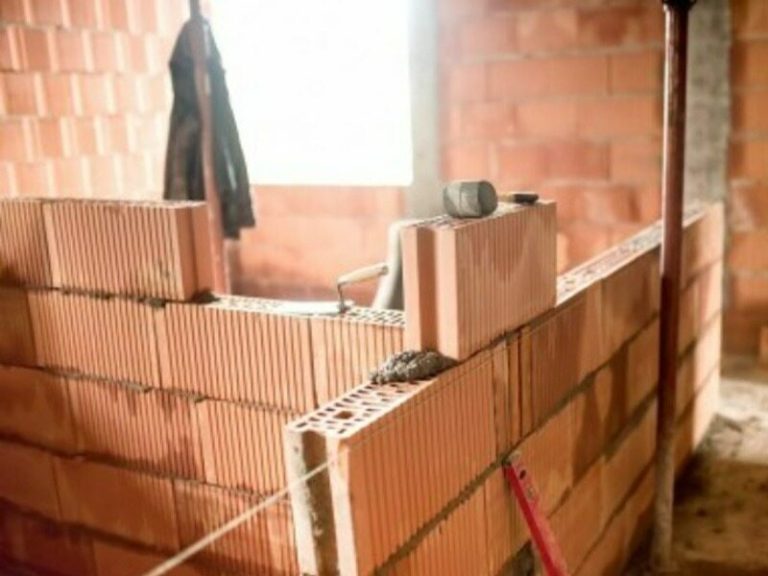Senior on “casting”. This is how the rental market will change

Will renting unfurnished apartments become more common in the coming years, as is the case in Germany or Sweden? Will the state promote rental and who will be the average tenant? Experts have analyzed the trends, and this is a mine of knowledge for people who are wondering whether to buy an apartment for rent.
How much can you earn “purely” by renting an apartment? When is the best time to buy? Will the profitability of renting decrease in the near future? Which tenants should you target when preparing an apartment for rent? These are the basic questions asked by people who want to buy an apartment for investment purposes – but there are more doubts. And now the bad news: it’s impossible to answer it with complete confidence.
Real estate market. Nothing can be predicted for sure
The real estate market is full of variables, and from time to time there are unexpected circumstances that disturb previous assumptions. For example, the pandemic, when learning was carried out remotely for several, or even at some universities, for several months, so students left their rented apartments and returned to their parents. Renting an apartment for a reasonable price in the second half of 2020 and the beginning of 2021 was bordering on a miracle, and yet the mortgage and bills have to be paid.
But then 2022 came and apartments for rent were falling apart, and their owners could choose among the candidates (infamous castings) and raise the rent, and there was still no shortage of people willing to do so. People who have already paid off their apartment won the lottery. They repaid loans worse, because the rent from tenants was often only enough to pay off the increasing installments, but it was better than nothing.
So if anything is known about the investment real estate market, the only thing that is known is that nothing is known. The profitability of apartments for rent changes over time and depends on various factors. It will be different when you buy an apartment for cash and when the owner repays the loan. The situation will be different in the case of an apartment that was ready to move in after purchase, and different when it needs to be thoroughly renovated, so you have to spend several dozen thousand zlotys at the start. Estimated to be average profitability investment in an apartment is 4-4.5 percent. net. As much as the current deposits.
The rental market in 2030. This may change
Entering the real estate market as a “small investor” is a bit of fortune-telling, but it is based on mathematics and calculations. It will also be useful to understand the market and know how it may change in the coming years. Information on this subject is provided by the latest report “Tenancy 2030 – directions of development of apartment rental in Poland” prepared by Think.Co., OtoDom and SimpleRent. It was created based on the opinions of 75 real estate experts
Curious what the market will look like in 7-10 years?
Over 60 percent respondents participating in the study believe that in the next seven years the social pressure to have their own apartment will weaken. This will be the result of several factors: on the one hand, real estate prices are increasingly out of sync with salaries (even a single person earning PLN 10,000 cannot afford to buy a square meter of apartment in the largest cities for a monthly salary. What to speak of people earning less or families), and the availability of loans is apparently increasing, but it is still an expensive option.
Experts believe that this will encourage many people to move to smaller cities, where they will be able to buy or rent an apartment cheaper than in provincial capitals.
Demographics will change. Students and young graduates will still be a large group of customers, but renting can also be expected to become popular among people over 30 years of age – with a stable job and good earnings. If they cannot afford to buy their own apartment, they will stay in a rented apartment, but they can expect a higher standard than students and the owners will have to take this into account.
Demography and the rental market
The popularity of renting in the coming years will also be influenced by the fact that more and more young people create single-person households – they do not have permanent partners and children and do not need to buy an apartment. It is nothing new that fewer and fewer children are being born. In the first half of this year, almost 140,000 children were born. This is over 14,000 fewer than in the same period last year.
According to the latest data from the Central Statistical Office, at the end of June there were just over 37.5 million people living in the country, about 130,000 fewer than at the end of June last year. The Central Statistical Office estimates that by 2050 there will be almost four and a half million fewer of us.
Landlords should not be surprised if in a few years more and more seniors come to “castings” – but in 10 years it will not be a mass phenomenon. 20 percent respondents noted that in 2030 the demand for senior housing will not be that high, as currently as much as 90% in the 60+ age group. apartments are owner-occupied apartments. However, in 20-30 years, the trend of renting by people approaching retirement or having exceeded retirement age will increase for two reasons. First of all, seniors who have never had their own apartment will rent.
They matured during the “casting” for tenants
Some customers, however, will be people who have their own apartment or even a house, but it was purchased/built when they had children and needed more space. Many of these properties will prove to be too expensive to maintain and too large after many years, so they will be sold or… rented, and their owners will look for something that will better suit their current needs.
The demand for rental properties will not disappear, but it will have to be targeted differently.
– An increase in the stock of apartments for rent and its segmentation are almost certain. Demand will be built simultaneously by many groups: tenants by choice, people without adequate creditworthiness and migrants. Everything indicates that the natural response will be to expand the rental offer, from luxury options to the most economical ones, but with a large stock of average standard. All the more so as more and more individual investors, PRS investment funds and publicly supported entities appear on the market – commented Anna Błaszczyk, member of the management board of PFR Nieruchomości.
Wholesalers and professionals
Today, apartments for rent are the domain of private individuals, but this is slowly changing. Currently, institutional lease agreements in Poland are only 5% and are available only in large cities. In mid-2021, a report by CBRE stated that only 5.5 thousand apartments in the capital were rented institutional. By mid-2021, 7,265 premises were put into use throughout Poland on an institutional lease basis. Another 25,000 apartments that will be supplied to the PRS sector are at the construction or preparation stage.
It is estimated that in 2023, approximately 33,000 will be available in Poland under PRS. apartments. In the next seven years, the sector will reach up to 100,000 apartments rented by specialized entities. This is over twelve times more than in 2021.
Let’s go back to the report: 98 percent. experts believe that the involvement of institutional entities in leasing will be disproportionately large and will have a positive impact on the professionalization of the entire sector. “Higher quality and attractive locations will make PRS become a market creator, and the standards used there will be copied by individual owners in an increasingly competitive market. In the future, the quality of the surroundings will also become more important and will become one of the key factors when choosing an apartment for rent, which was confirmed by nearly 80% of experts in the survey,” we read.
This means that the growing share of real estate in institutional rentals (in large cities, let’s repeat) will affect private landlords and force them to professionalize their services. No more old furniture and keeping unnecessary things in closets made available to tenants, no more unannounced visits and no more asking the tenant to leave within 3 weeks (although the contract provides for a longer notice period) because the apartment suddenly became necessary. Of course, this professionalization will not cover all apartments, but rather slightly higher-end ones.
For many tenants, price will still play a major role and they will agree to an uncomfortable sofa and unpainted walls just to negotiate a discount of several hundred zlotys. In the case of apartments for customers who do not have to bargain, quality and professional service (from signing the contract to solving current problems) will be of great importance.
The state will focus on ownership
What else can we read in the report? Experts do not expect intensive development of the rental market in the smallest and small towns or an increase in the popularity of renting houses in rural and suburban areas. They also do not believe that the state will become more actively involved in stimulating the rental market, but will continue to promote ownership.
– Today, the Safe Credit 2% program assumes increasing the availability of housing ownership. Its critics, however, believe that this program stimulates demand and only leads to a faster increase in real estate prices. In our opinion, housing policy cannot revolve only around increasing ownership, and we need market diversification yesterday. Rental can play a huge role in this process, which is why we have started discussing its future – explains Tomasz Bojęć, co-founder at ThinkCo., co-author of the report.
Additionally, experts consider it unlikely that the regulations on the protection of tenants’ rights will be liberalized in favor of apartment owners. They also do not envisage a greater spread of renting unfurnished apartments or the introduction of regulations regulating rent levels at the national level.






